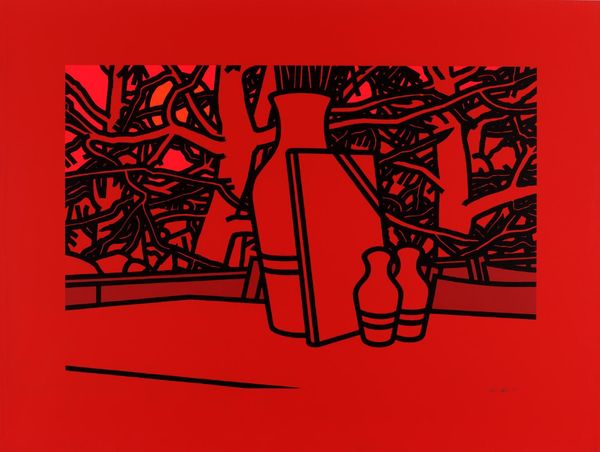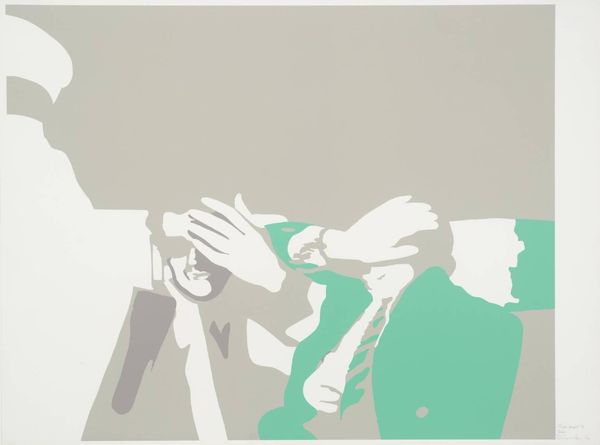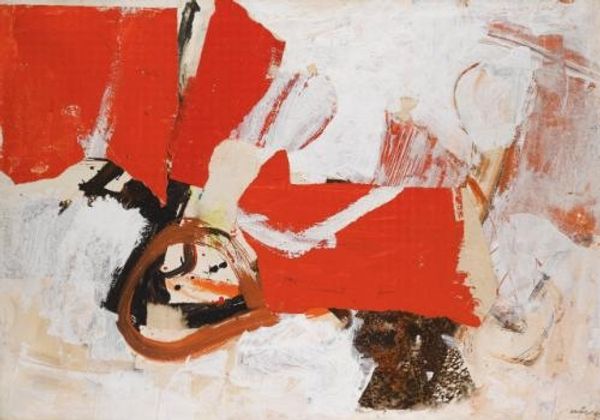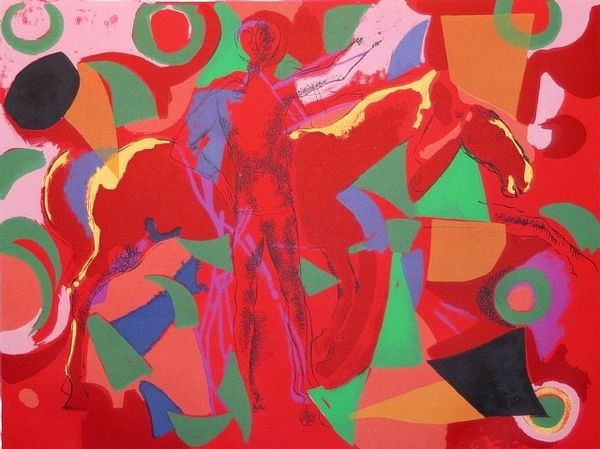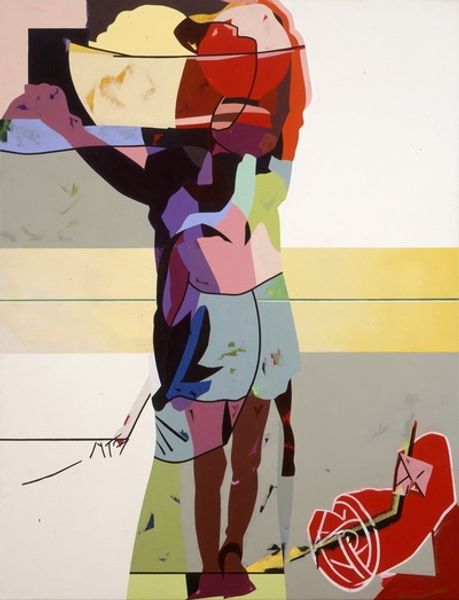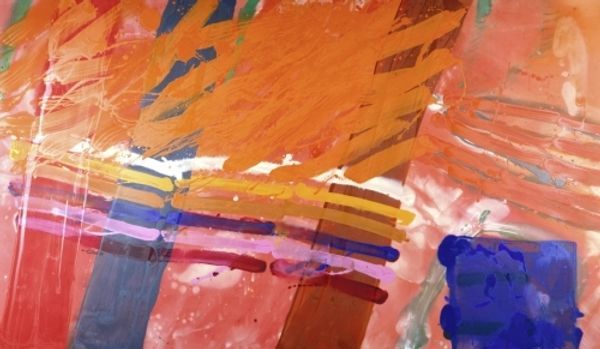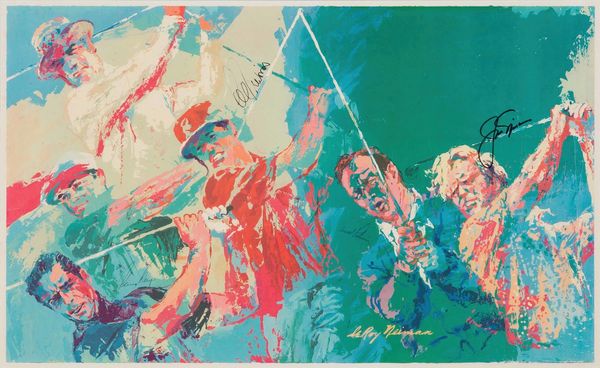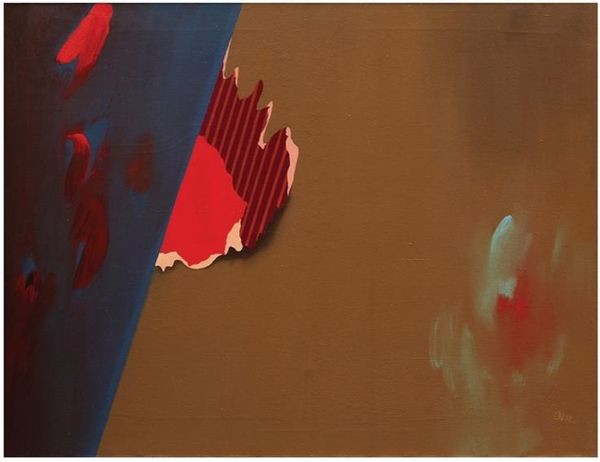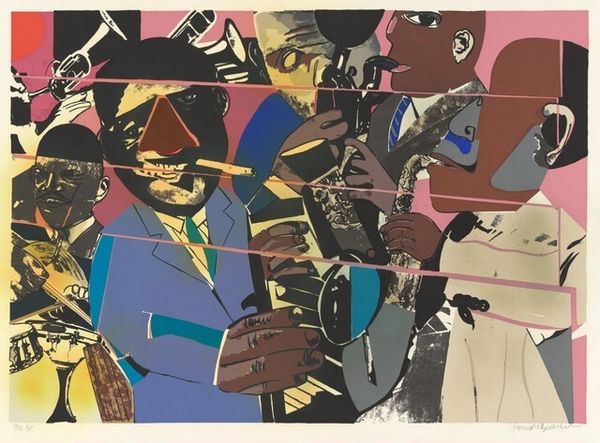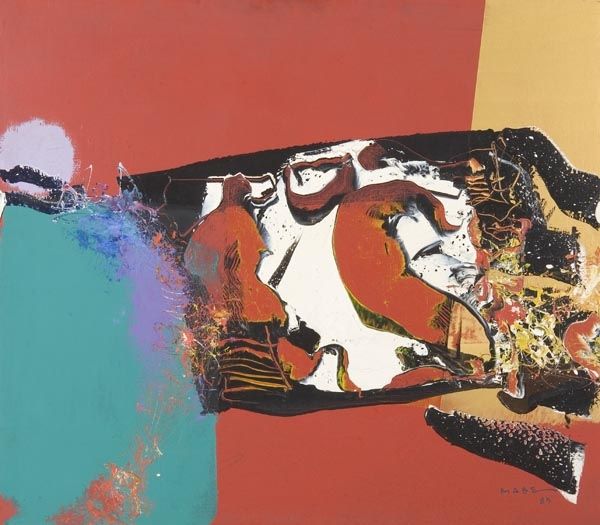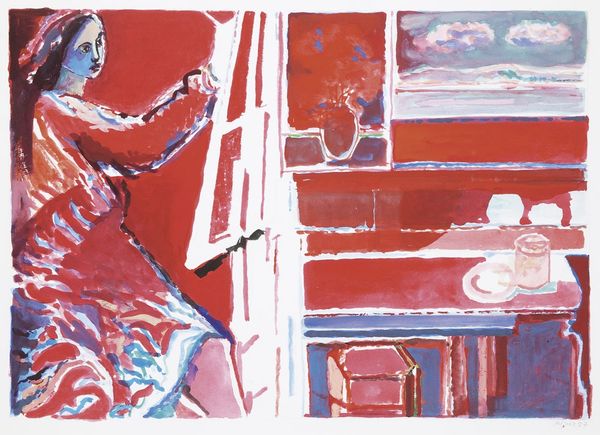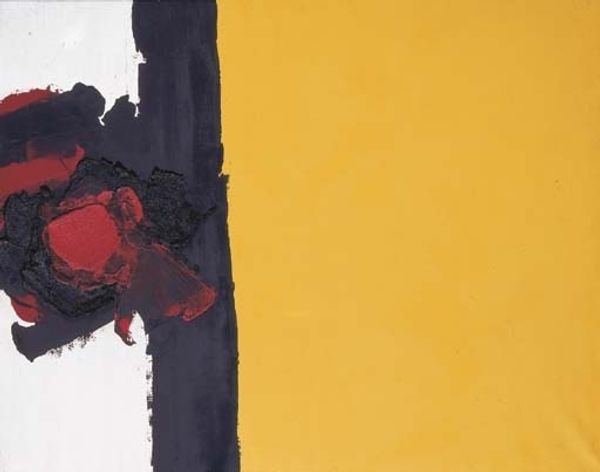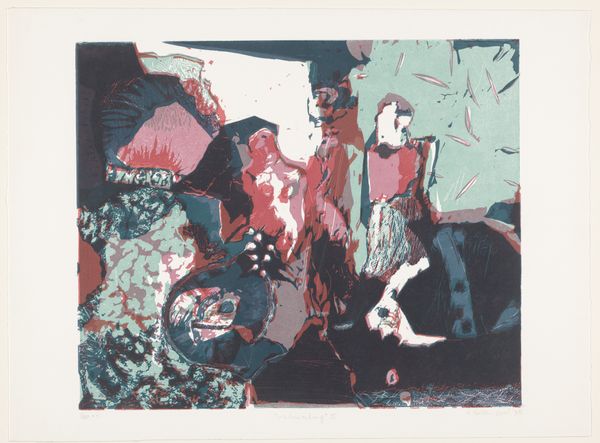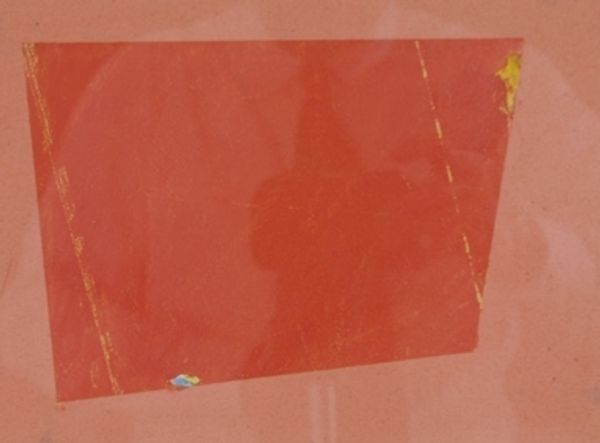
collage, acrylic-paint
#
collage
#
narrative-art
#
pop art
#
acrylic-paint
#
figuration
#
pop-art
Copyright: Rosalyn Drexler,Fair Use
Curator: "Lovers (a.k.a. Am I Faris)," a 1963 collage and acrylic painting by Rosalyn Drexler. The artwork's sharp juxtapositions immediately strike me. What's your initial impression? Editor: Well, there's this couple embracing at the bottom, a despondent-looking man, and a woman posing almost like a model—all against this flat, bright red background. It feels disjointed, almost unsettling. I guess my question is, how do we even begin to piece this all together? Curator: Exactly! Drexler is challenging us. The collage elements—those fragmented bits of printed media—they're crucial. Consider the context: early 1960s America, the rise of Pop Art, but also burgeoning feminist critiques of representation. Editor: So, you're saying the "lovers" aren't just a romantic image? Curator: Think about how women were portrayed in media at that time – often as either idealized objects of desire or symbols of domesticity. Drexler uses those images but deconstructs them, placing them alongside these other figures who seem alienated, lost. Are these conventional, clichéd portrayals really reflective of real relationships and emotional experiences? Is Drexler, through the alternative title "Am I Faris?", perhaps exploring female identity within those media representations? Editor: So, it's less about romance and more about questioning the narratives around love and relationships. That red background now feels less like a backdrop and more like a shout, an angry or impassioned demand for us to confront the stereotypes! Curator: Precisely! And the way she uses collage disrupts a singular narrative. The "lovers" are presented as a packaged idea of love, and against which all other images and feelings must co-exist, compete or sit in silent despondency. It asks: Whose story is being told, and whose is being left out? What has our media made of our notions of "love?" Editor: I see it now. It’s definitely more complex than I initially thought. Thank you! Curator: And thank you! Thinking through this piece helps sharpen the critical tools needed to decode our visual culture and social condition.
Comments
No comments
Be the first to comment and join the conversation on the ultimate creative platform.
